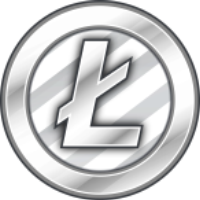Bitcoin is not the only crypto asset out there, there are now over five thousand with the number increasing daily and these alternatives to Bitcoin are called ‘Altcoins’ or ‘Alts’ and sometimes ‘Shitcoins’. The blockchain concept may have been invented for Bitcoin but it has no monopoly on blockchain technology.

Some altcoins are clones of Bitcoin with slight alterations increasing speed, distribution methods, mining algorithms, supply amount, centralisation, privacy and all are trying to improve on the original Bitcoin in some way.
It will be argued that these altcoins do not offer anything that cannot be coded into Bitcoin or layered on top in the future so they should be seen as even more experimental than Bitcoin. Many altcoin values have fallen to £0 during Bitcoins continued growth and adoption and many have exponentially increased in value but nothing has surpassed Bitcoin.
Some examples of the largest altcoins by market capitalisation and how they differ from Bitcoin:
![]() Ethereum (ETH) – Bitcoins fiercest rival, pioneering smart contracts and tokenization mainly through Initial Coin Offerings, faster transaction confirmations
Ethereum (ETH) – Bitcoins fiercest rival, pioneering smart contracts and tokenization mainly through Initial Coin Offerings, faster transaction confirmations
![]() XRP – aimed at the financial services sector, faster transaction confirmations, lower transaction fees, no mining
XRP – aimed at the financial services sector, faster transaction confirmations, lower transaction fees, no mining
![]() Bitcoin Cash (BCH) – very contentiously claims to be the ‘real’ Bitcoin, faster transaction confirmations, lower transaction fees
Bitcoin Cash (BCH) – very contentiously claims to be the ‘real’ Bitcoin, faster transaction confirmations, lower transaction fees
 Litecoin (LTC) – called the silver to Bitcoins gold, faster transaction confirmations, lower transaction fees
Litecoin (LTC) – called the silver to Bitcoins gold, faster transaction confirmations, lower transaction fees
 Stellar Lumens (XLM) – an asset/currency bridge, faster transaction confirmations, lower fees, no mining
Stellar Lumens (XLM) – an asset/currency bridge, faster transaction confirmations, lower fees, no mining
![]() Cardano (ADA) – changing the way cryptos are designed and developed, faster transaction confirmations, no mining
Cardano (ADA) – changing the way cryptos are designed and developed, faster transaction confirmations, no mining
 IOTA – aimed at the ‘Internet of Things’, faster transaction confirmations, lower transaction fees, no mining
IOTA – aimed at the ‘Internet of Things’, faster transaction confirmations, lower transaction fees, no mining
 NEO – seen as the Chinese Ethereum, pioneering smart contracts, faster transaction confirmations, lower transaction fees, no mining
NEO – seen as the Chinese Ethereum, pioneering smart contracts, faster transaction confirmations, lower transaction fees, no mining
 Monero (XMR) – privacy focused, faster transaction confirmations, lower transaction fees
Monero (XMR) – privacy focused, faster transaction confirmations, lower transaction fees
These are mainly ‘cryptocurrencies’, designed to act as currency but a new type of crypto created on existing platforms such as these are called Utility or Security Tokens. The best example platform is Ethereum. On the Ethereum network anyone can create ERC20 tokens, most tokens of which have been created with a utility or security in mind.
Utility tokens represent access to a companies product or service such as providing access to cloud storage, supply chain management, decentralised applications, prediction markets, supercomputer access, digital advertisements, the list is as long as your imagination.
Security tokens are backed by external, tradable assets, some can be designed to be a companies share entitling the token holder to company dividends. Securities are heavily regulated and it is a very grey area deciding which tokens are security or utility tokens.
There are likely to be big changes in the landscape when regulations start to be created and enforced covering utility and security crypto tokens.
